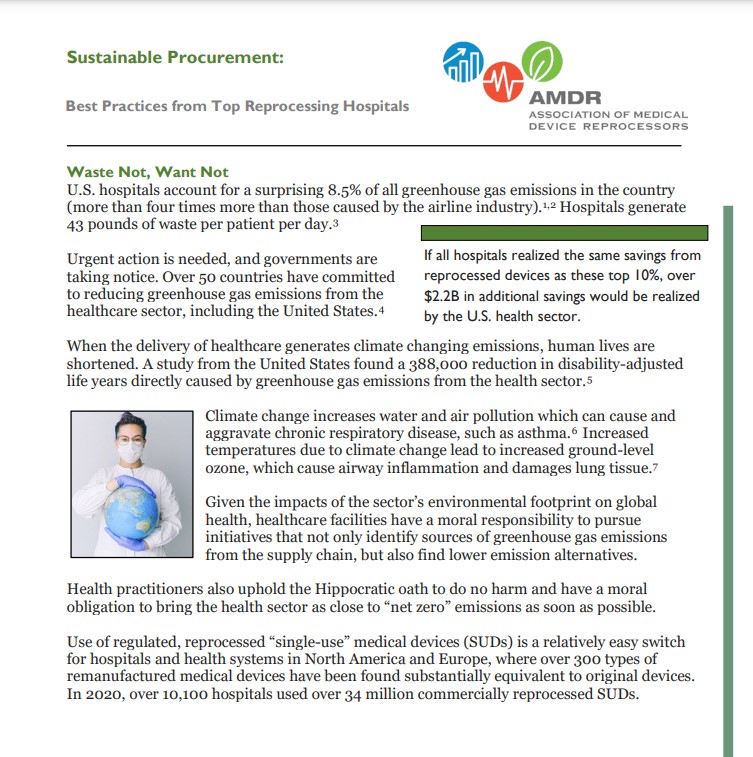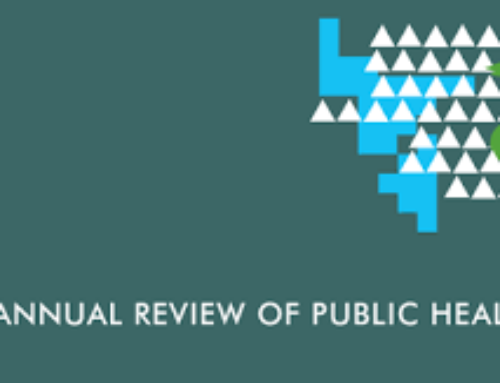Waste Not, Want Not
U.S. hospitals account for a surprising 8.5% of all greenhouse gas emissions in the country (more than four times more than those caused by the airline industry). Hospitals generate 43 pounds of waste per patient per day.
Urgent action is needed, and governments are taking notice. Over 50 countries have committed to reducing greenhouse gas emissions from the healthcare sector, including the United States.
When the delivery of healthcare generates climate changing emissions, human lives are shortened. A study from the United States found a 388,000 reduction in disability-adjusted life years directly caused by greenhouse gas emissions from the health sector.
Climate change increases water and air pollution which can cause and aggravate chronic respiratory disease, such as asthma. Increased temperatures due to climate change lead to increased ground-level ozone, which cause airway inflammation and damages lung tissue.
Given the impacts of the sector’s environmental footprint on global health, healthcare facilities have a moral responsibility to pursue initiatives that not only identify sources of greenhouse gas emissions from the supply chain, but also find lower emission alternatives.
Health practitioners also uphold the Hippocratic oath to do no harm and have a moral obligation to bring the health sector as close to “net zero” emissions as soon as possible.
Use of regulated, reprocessed “single-use” medical devices (SUDs) is a relatively easy switch for hospitals and health systems in North America and Europe, where over 300 types of remanufactured medical devices have been found substantially equivalent to original devices. In 2020, over 10,100 hospitals used over 34 million commercially reprocessed SUDs. . .









